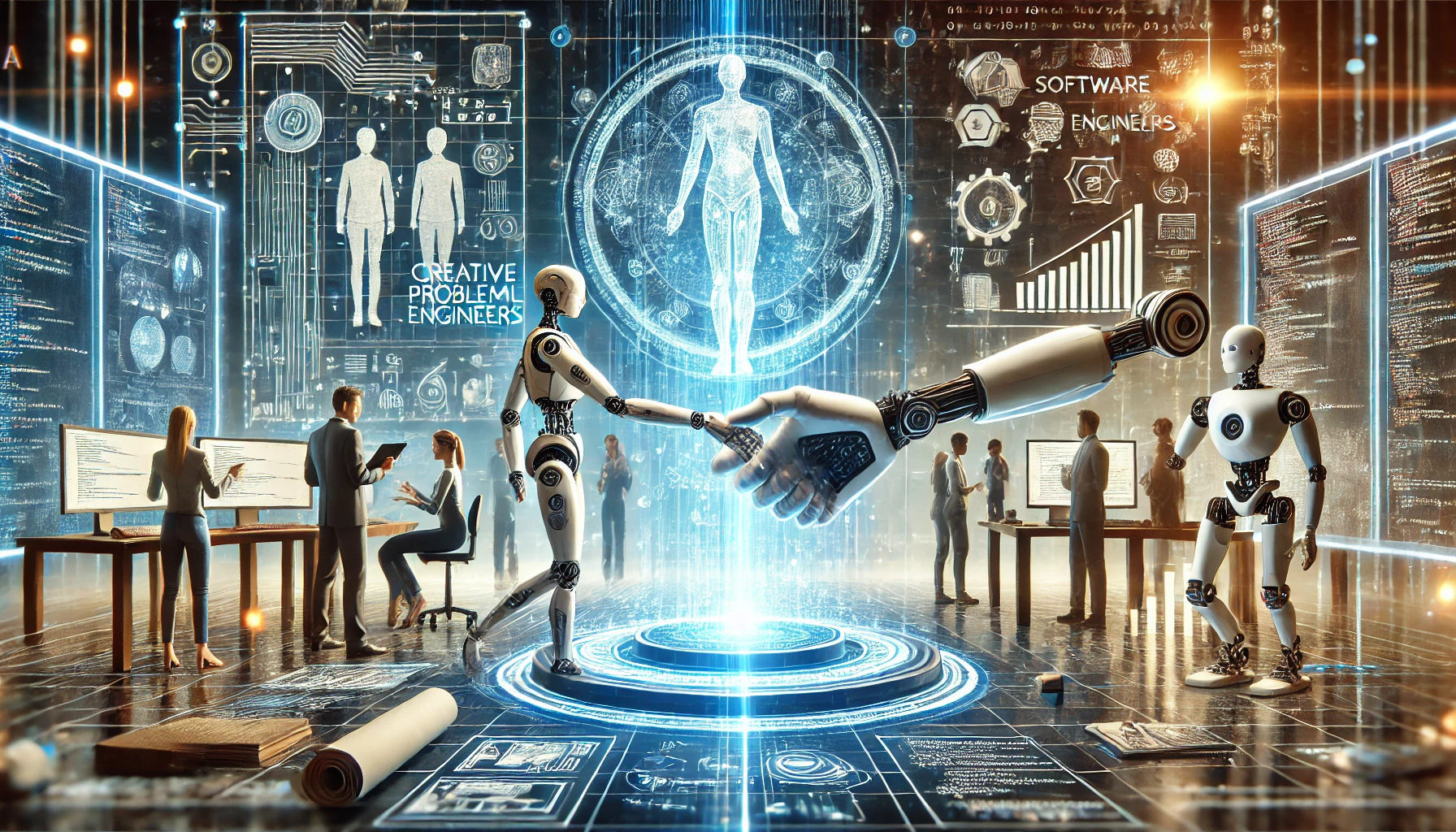The Future of Software Engineering in the Age of AI: A Balanced Perspective
 Nikhil
Nikhil
In recent years, the rapid advancement of Artificial Intelligence (AI) and Large Language Models (LLMs) has sparked intense debate about the future of various industries, including software engineering. As these technologies continue to evolve, questions arise about their potential to transform, augment, or even replace traditional software engineering roles. This article aims to explore both supporting and challenging views on this topic, providing a balanced perspective on the future of software engineering in the age of AI.
Introduction
The software engineering landscape is undergoing a significant transformation, driven by the increasing capabilities of AI and LLMs. As these technologies mature, they promise to revolutionize how we approach software development, potentially reshaping the entire industry. However, this transformation is not without controversy, as it raises important questions about the future role of human software engineers and the nature of software development itself.
AI as a Transformative Force
1. Displacement of Traditional Software Engineering
One of the most compelling arguments for AI's impact on software engineering is its potential to take over functional coding and infrastructure management. As AI-powered platforms become more sophisticated, they could potentially handle a significant portion of the coding tasks currently performed by human engineers. This shift echoes a long-standing trend of commoditization in the field, similar to how the introduction of high-level languages like Java and Python abstracted away many low-level programming details.
2. Shift in Computer Science Education
AI's rise in software development will likely spark a reevaluation of computer science education. As coding bootcamps gain popularity and AI takes over more routine coding tasks, the focus of computer science degrees may shift from practical software engineering training to a deeper exploration of the theoretical foundations of computing. This could lead to a renewed emphasis on areas such as algorithms, data structures, and the theoretical underpinnings of AI and machine learning.
3. Efficiency and Productivity Gains
AI has the potential to dramatically increase efficiency in software development, particularly in handling low-skill coding tasks. This could lead to a significant boost in productivity, allowing development teams to deliver software faster and at a lower cost. As AI takes over more routine tasks, software engineers may find themselves focusing more on high-level decision-making and complex problem-solving.
4. Meeting Rising Customer Expectations
As technology advances, customer expectations for software quality and functionality continue to rise. AI could play a crucial role in meeting these expectations by enabling the rapid development of high-quality, feature-rich applications. This could lead to a new era of software development where AI-assisted teams can deliver sophisticated solutions at an unprecedented pace.
5. Human-AI Collaboration
Rather than completely replacing human software engineers, AI is likely to augment their capabilities. This collaboration between human expertise and AI capabilities could lead to more innovative solutions, particularly for complex, NP-hard problems where both human intuition and AI's computational power can be leveraged effectively.
6. Transformation of the Software Industry
The integration of AI into software development processes is likely to have far-reaching effects on the industry as a whole. This could include changes in how venture capital is allocated, with a shift towards more efficient, capital-light models of software development. Additionally, the rise of specialized AI tools for various aspects of software engineering could significantly reduce the marginal cost of building software applications.
The Enduring Value of Human Expertise
1. AI's Limitations in Novel Problems
While AI excels at tasks it has been trained for, it still struggles with truly novel problems that require creative thinking and innovation. Human software engineers remain essential for tackling unique challenges and developing innovative solutions that go beyond the scope of AI's training data.
2. The Complexity of Requirements Gathering
One of the most challenging aspects of software development is accurately interpreting and translating client requirements into functional specifications. This process often requires nuanced understanding and communication skills that AI currently lacks. Human software engineers play a crucial role in bridging the gap between client needs and technical implementation.
3. The Need for High-Level Architectural Decisions
As the software engineering field evolves, there will likely be an increased demand for senior architects and infrastructure managers who can make high-level decisions about system design and architecture. These roles require a deep understanding of both business needs and technical possibilities, areas where human expertise remains invaluable.
4. Lessons from Other Industries
The slow progress in areas like self-driving cars serves as a cautionary tale for those predicting rapid and complete automation of software engineering. Like autonomous vehicles, software development involves complex, real-world scenarios that are difficult to fully capture in AI models. This suggests that the transformation of software engineering by AI may be more gradual than some predict.
5. Economic and Societal Considerations
The potential disruption caused by AI in software engineering raises important economic and societal questions. Rapid changes in the job market could lead to significant employment challenges, requiring careful consideration of the broader impacts on society and the need for retraining and reskilling programs.
Embracing a Collaborative Future
As we look to the future of software engineering in the age of AI, it's clear that significant changes are on the horizon. However, rather than a complete replacement of human software engineers, we are more likely to see a transformation of the field, with AI and humans working in tandem to create more sophisticated, efficient, and innovative software solutions.
The key to success in this new landscape will be adaptability. Software engineers will need to evolve their skills, focusing more on high-level problem-solving, architectural design, and the effective use of AI tools. At the same time, organizations must be prepared to rethink their development processes and business models to fully leverage the potential of AI in software engineering.
Ultimately, the future of software engineering is likely to be characterized by a powerful synergy between human creativity and AI capabilities. By embracing this collaborative approach, we can unlock new levels of innovation and productivity in software development, ushering in an exciting new era for the field.
Subscribe to my newsletter
Read articles from Nikhil directly inside your inbox. Subscribe to the newsletter, and don't miss out.
Written by
